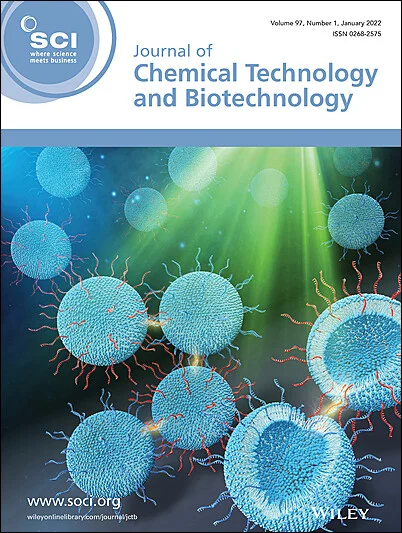A novel magnetic bifunctional hydrochar catalyst derived from palm leaf residue for biodiesel production: kinetic and thermodynamic studies
Abstract
BACKGROUND
Novel magnetic bifunctional hydrochar-based catalysts were produced from activated hydrochar derived from palm leaf residue (PLRAH) via a wet impregnation technique and used to perform one-step waste cooking oil (WCO) transesterification to produce biodiesel. The magnetic bifunctional hydrochar-based catalysts were evaluated for their acid–base properties, crystallinity, functional groups, magnetism, textural properties, thermal stability, chemical composition, and morphology.
RESULTS
The PLRAH-Fe2O3/K2O magnetic catalyst performed well in thermal testing, with a large specific surface area of 111.08 m2 g−1 and its high basicity value of 7.34 mmol g−1, as well as an acidity value of 12.67 mmol g−1, significantly contributed to the WCO transesterification. An optimum biodiesel yield of 98.36% was obtained under the following conditions: catalyst loading of 3 wt%, a methanol-to-WCO molar ratio of 12:1, and a reaction temperature of 75 °C for a duration of 4 h and biodiesel yields maintained at >80% after five cycles. The produced biodiesel complied with the physicochemical properties stated in ASTM D6751. The kinetic study also revealed that WCO transesterification using the one-step approach had a pseudo-first order and activation energy () of 24.27 kJ mol−1. Furthermore, the thermodynamic variables, including Gibbs free energy (∆Go), enthalpy (∆Ho), and entropy (∆So) of WCO transesterification, were found to be 7.60 kJ mol−1, 24.27 kJ mol−1, and −21.78 J mol−1 K, respectively. This suggests that WCO transesterification was an endothermic and non-spontaneous process.
CONCLUSION
The synthesized magnetic bifunctional hydrochar-based catalyst demonstrated outstanding performance for WCO transesterification, highlighting its potential for efficient biodiesel production. © 2024 Society of Chemical Industry (SCI).

 求助内容:
求助内容: 应助结果提醒方式:
应助结果提醒方式:


